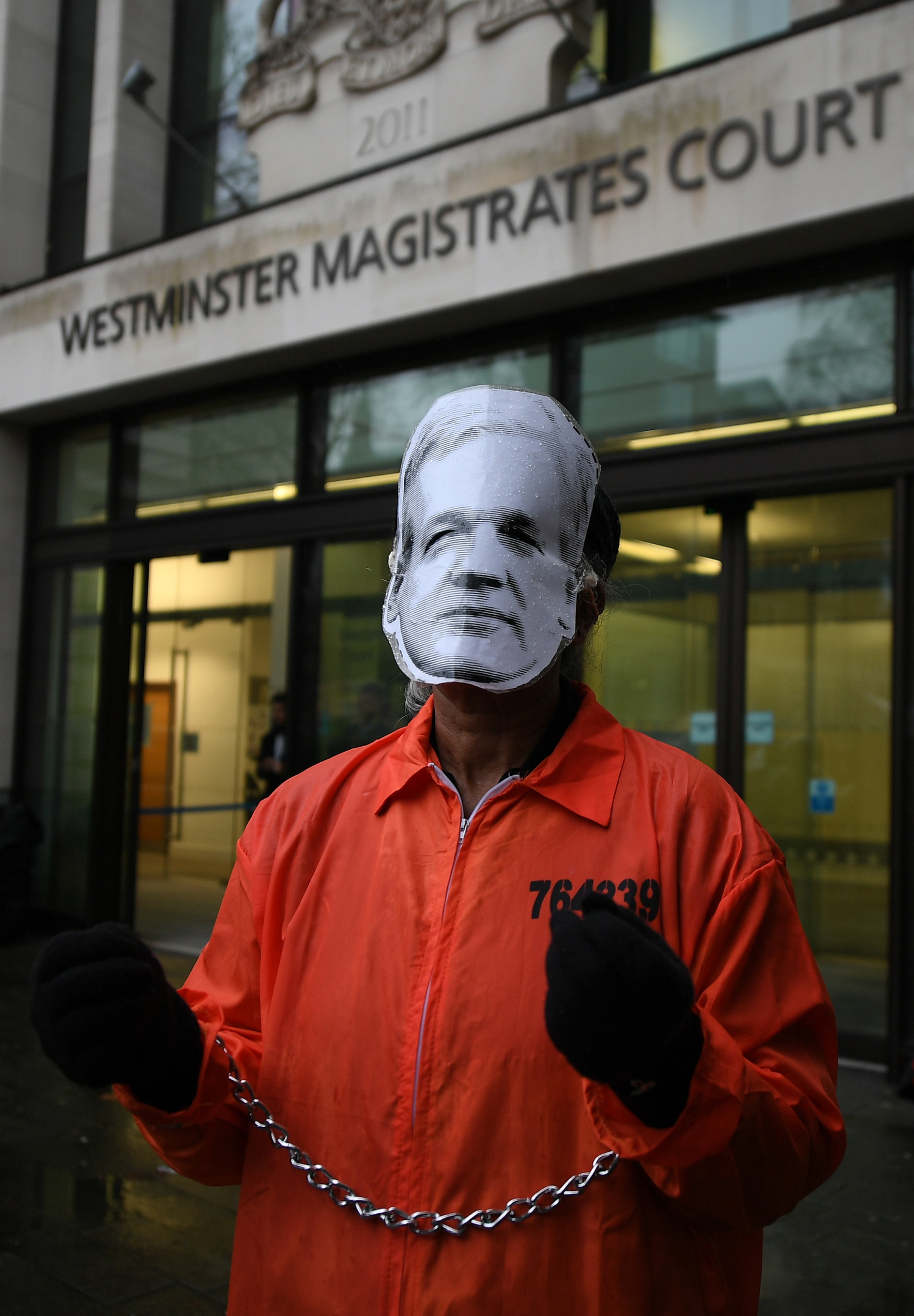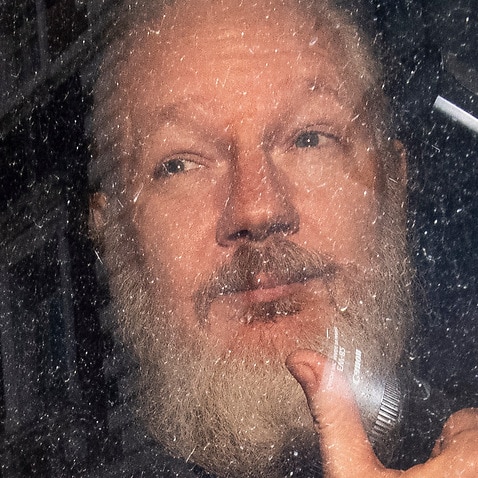Julian Assange may not be able to use First Amendment press protection if extradited
Julian Assange may not be allowed to use US First Amendment rights to defend himself if he's extradited to the US to face trial, WikiLeaks says.
The charges related to allegations Assange tried to help former US army intelligence analyst Chelsea Manning protect her digital identity as she accessed classified Pentagon files on the Iraq and Afghanistan wars.
WikiLeaks editor Kristinn Hrafnsson says a new affidavit provided by US government lawyers this week for Assange's upcoming extradition trial states that foreign nationals, like Assange, are not entitled to press protections under the US Constitution's First Amendment.
Mr Hrafnsson revealed the development outside Assange's case management hearing at London's Westminster Magistrates Court on Thursday.
"On the one hand they have decided that they can go after journalists wherever they are residing in the world, they have universal jurisdiction, and demand extradition like they are doing by trying to get an Australian national from the UK for publishing that took place outside US borders," he told AAP.
"But then at the same time, they are not granting any foreign journalist the protection of the First Amendment.
"That's extremely serious. That's of grave concern to all journalists.
"We are seeing this incremental approach, a darkness flowing over journalism from that country, and it's about time that journalists really united in resisting this."
Assange appeared by video link from prison at Thursday's hearing and did not speak except to say his name and birthdate for the court.
Judge Vanessa Baraitser reluctantly agreed to split his trial into two segments with the first week to begin on 24 February and the final three weeks to be held from 18 May.
Her ruling came after prosecutors flagged timetabling issues and the defence pleaded for more time to deal with an ever-expanding pile of evidence coming from the US.
Mr Hrafnsson says the delay may give Assange and his legal team more time to review mounting evidence, as they have only been permitted four hours together since his arrest on 11 April.
But he admitted it would also further extend Assange's time behind bars.
"A maximum-security prison for a non-violent person like Julian, who is a free man basically, who is on remand, is outrageous," Mr Hrafnsson told AAP.
"It's totally unacceptable."



0 Comments:
Post a Comment
Subscribe to Post Comments [Atom]
<< Home